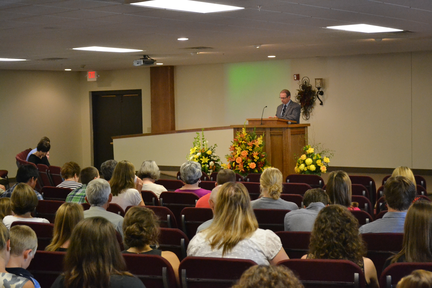6-11-2017 Surprising Faith James 2:18-26

This story is told by the captain of a ship on which George Muller of Bristol was traveling. During his life he received more than 1,000,000 pounds from the Lord, without advertising—every penny came as an answer to prayer.
“We had George Muller of Bristol on board,” said the captain. “I had been on the bridge for twenty-four hours and never left it and George Muller came to me and said, “Captain, I have come to tell you I must be in Quebec on Saturday afternoon.” “It is impossible,” I said. “Then very well, if your ship cannot take me, God will find some other way. I have never broken an engagement in fifty-seven years; let us go down into the chart room and pray.”
“I looked at that man of God and thought to myself, “What lunatic asylum can that man have come from, for I never heard of such a thing as this?” “Mr. Muller,” I said, “do you know how dense this fog is?”
“ “No,” he replied, “my eye is not on the density of the fog, but on the living God who controls every circumstance of my life.” He knelt down and he prayed one of the most simple prayers. When he had finished I was going to pray, but he put his hand on my shoulder and told me not to pray. “As you do not believe He will answer, and as I believe He has, there is no need whatever for you to pray about it.”
“I looked at him and George Muller said, “Captain, I have known my Lord for fifty-seven years and there has never been a single day when I have failed to get an audience with the King. Get up, Captain, and open the door and you will find the fog has gone.”
“I got up and the fog indeed was gone, and on that Saturday afternoon George Muller kept his promised engagement.”
—Sunday School Times